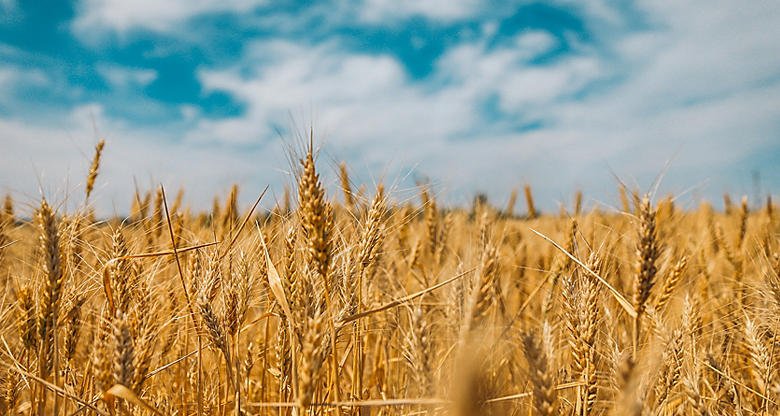Innovation, building resilient communities and embracing emerging opportunities are key strategies to tackle the complex challenge of global food demand, population growth and environmental stewardship, a panel of experts hosted by Commonwealth Bank and Landcare Australia has found.
Commonwealth Bank (CBA) and Landcare Australia today hosted a panel at the National Press Club of Australia, where leaders from across the Australian agriculture industry shared their insights about how the sector is helping to solve one of the world’s most complex problems – how to produce more food for a growing global population while protecting our environment and supporting the transition to a lower carbon future.
The panel was hosted by Natasha Greenwood, CBA General Manager for Agribusiness, and joined by James Walker, Landcare Australia Board Director and Managing Director of Agrihive; Dr Anika Molesworth, author, scientist and farmer from far western NSW; Jess Webb, beef cattle farmer from New England, and Board Member at Beef Australia; and Carmel Onions, CommBank’s Executive Manager, Agribusiness Sustainability.
“Our panellists are leading voices in the ag sector with valuable insights about how ag is leaning into this challenge through innovation, by building resilient communities and through embracing emerging opportunities,” Ms Greenwood said.
“CBA is excited about the many opportunities in the ag sector to grow food efficiently and in a way which prioritises environmental health. Australian farmers are leading the way in implementing practices which have the co-benefits of improving productivity and profitability, while also lowering emissions. This includes activities such as carbon sequestration, using precision agriculture for the application of chemicals and fertiliser, practices which promote soil health renewable energy, rotational grazing for livestock and establishing native revegetation areas.
“There is also tremendous untapped potential right across the industry which important organisations such as Landcare Australia and other industry stakeholders are enthusiastically progressing. We do recognise there are challenges which need to be navigated and that farming businesses will be impacted in different ways. Our goal is to support all ag businesses, no matter where they are on their journey, to transition to a lower carbon future and to remain strong so they can continue to grow the food and fibre we need.”
As a cattle farmer, veterinary practice owner from Longreach, and Board Director at Landcare Australia, James Walker embodies the essence of sustainable agriculture.
A previous recipient of Australian Farmer of The Year for Excellence in Diversification, Mr Walker actively embraces innovation on his farm, setting an inspiring example for the industry. In sharing his insights, Mr Walker emphasised the critical role of Landcare Australia in supporting Australian farmers to become more sustainable, resilient in the face of challenging climatic conditions, and adept in navigating the Carbon Market and emerging nature repair markets.
“The robust core of sustainable agriculture lies in balancing global food demand, population growth, and environmental stewardship,” Mr Walker said. “Agriculture, standing at the forefront of responsibility and care, reflects the broader commitment of Landcare Australia to guide farmers toward a future of agricultural excellence, environmental stewardship, and global leadership.”
Jess Webb, along with her partner Hamish, have just embarked on a soil carbon project on their farm. She says the program was driven first and foremost by a desire to improve production outcomes, but they are always looking at ways profitability and sustainability can go hand in hand.
“We were already thinking about soil improvement before the thought of a carbon project ever crossed our minds,” Ms Webb said. “We have a neutral approach that is first and foremost about our livestock and we are always looking at the co-benefits of what we are doing and this project has been a great complement to the way we operate our business.”
Resilience was also a key theme throughout the discussion, and Dr Anika Molesworth is a passionate advocate for driving the conversation on how we can create a sustainable and vibrant farming landscapes now and for the future.
“Our natural world is remarkable in its beauty and complexity,” Ms Molesworth said. “It is also incredibly vulnerable and fragile when taken advantage of. For those of us working in agriculture, we have a responsibility to look after the environment – the land, water, climate, biodiversity – and we know when we do, there are a flow of positive outcomes.
“To make a real contribution to global food security and addressing climate change, we need to champion agricultural practices that take care of and regenerate land, water, climate and biodiversity systems.”
Carmel Onions, CBA Executive Manager Agribusiness Sustainability, said sustainable farming is essential for delivering food security, because it rebuilds natural capital which is the foundation and enabler for more productive, resilient and lower cost agriculture.
“We are seeing enormous efforts across all areas of agriculture, and services to agriculture, to help farmers undertake and monetise the private benefits from ongoing adoption of further sustainable practices,” Ms Onions said. “Farmers are already doing so much, and there is so much more opportunity that can be leveraged.
Ms Onions expressed her great optimism at the exponential increase in knowledge and appetite to explore new practices on-farm that simultaneously rebuild nature and biodiversity, while lowering net emissions and addressing the climate risk facing all farmers.
“Commonwealth Bank is proud to support farmers through our suite of sustainable financing solutions. These include our Australian first agri green loan which provides discounted pricing to implement those activities which enhance natural capital as well as green asset finance and carbon prefinancing.”
Source : Commbank

